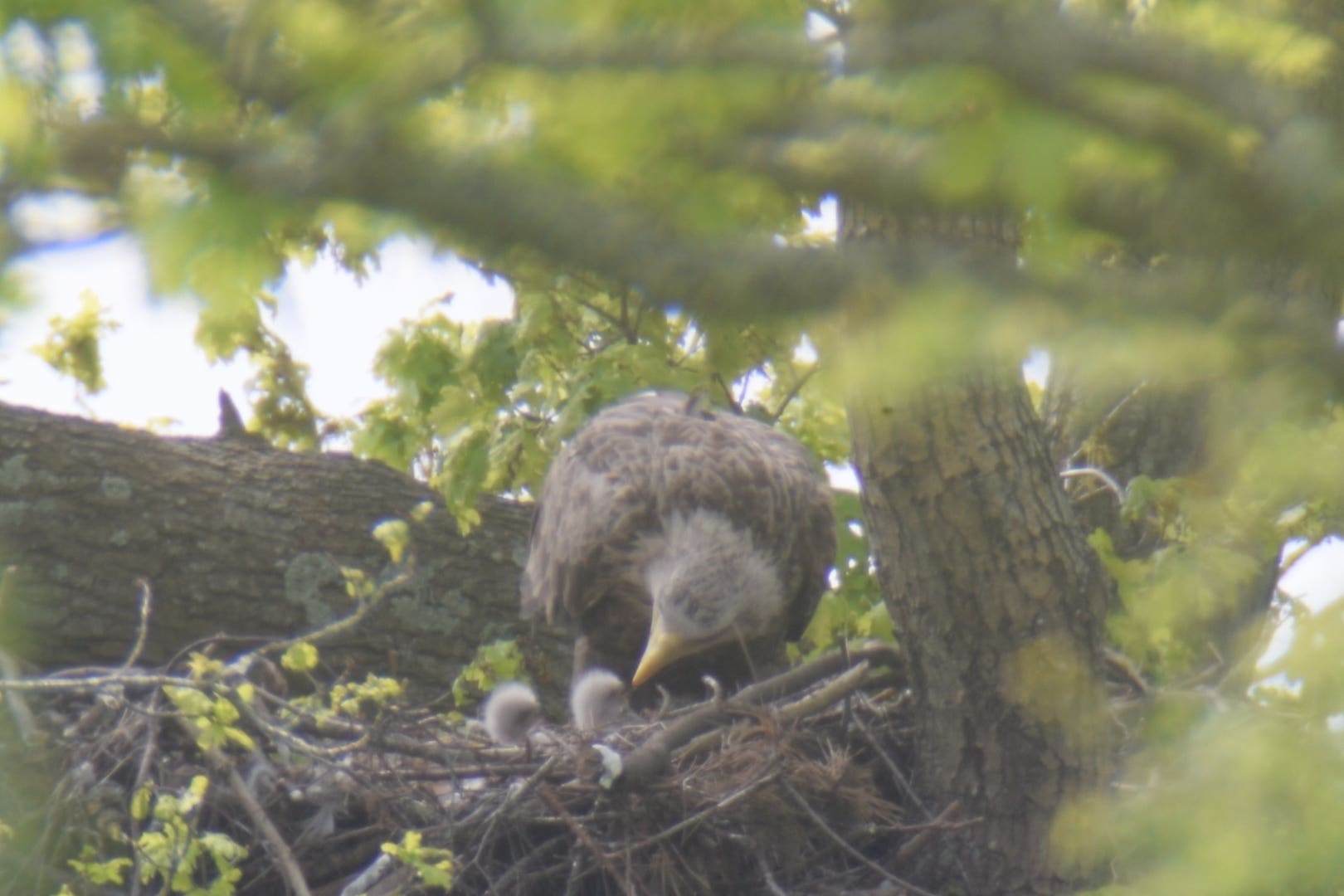Two white-tailed eagle chicks fledge in success for English reintroduction bid
It marks only the second time the enormous birds of prey have bred in southern England in 240 years.

Two white-tailed eagle chicks have fledged from a nest in England, in only the second time the birds have bred here in 240 years, conservationists said.
The male chicks are the offspring of two white-tailed eagles released on the Isle of Wight in a project by Forestry England and the Roy Dennis Wildlife Foundation to return the long-vanished birds of prey to England.
The parents were released as part of the project in 2020 and were the same pair that successfully raised a single male chick last year, the first white-tailed eagle to be born in southern England since 1780, the team said.
Conservationists on the scheme said the arrival of the two chicks was “tremendously exciting”, and the parents’ success in rearing them to fledging showed the abundance of food on the south coast and the suitability of the region for the birds.
White-tailed eagles – nicknamed flying barn doors because of their wingspan of up to 8ft (2.4m) – were once widespread in southern England until the 18th century when persecution led to them being wiped out in the region.
Some 37 young birds, taken as chicks from wild nests in Scotland where the eagles have successfully been re-established, have been released on the Isle of Wight, which provides good habitat for the wetland and coast-loving species.
A study into the food they are eating in the region, shows they are targeting prey such as cuttlefish, rabbits, fish and other birds, and there are “no conflicts” with farming, despite concerns in some quarters that the birds could prey on livestock such as lambs.
So far, 22 of the reintroduced birds have survived, while three wild-born chicks have now fledged.
The two chicks fledging this year are fitted with satellite tags, so the project team can track their progress.
Last year’s chick has also been followed using his satellite tag, showing he has explored widely across the UK as far as the north of Scotland.
Roy Dennis, founder of the Roy Dennis Wildlife Foundation, said: “Restoring a breeding population in southern England, where the species was once widespread, has been our ultimate goal.
“So, to see this second year of breeding success is really encouraging. It is still early days, but this is a very significant milestone.”
He added: “We are always so heartened to see the support of so many people towards these magnificent birds and the positive reactions those lucky enough to have seen one have.
“This success demonstrates our ability to restore nature, including very large iconic species; nature recovery requires even greater effort from us all.”
When we first saw two chicks appear in the nest it was tremendously exciting
Steve Egerton-Read, white-tailed eagle project officer for Forestry England, said: “We have spent the last few months closely watching this pair of eagles, hoping that they would successfully breed again this year.
“Things looked promising throughout the spring, but you never know if they will ultimately be successful.
“When we first saw two chicks appear in the nest it was tremendously exciting!
“For both to make it to fledging demonstrates the abundance of food in this landscape and the suitability of southern England for these birds.”
The team said white-tailed eagles typically reach breeding maturity at around four or five years old.
Four pairs, including the pair that have bred, have now formed and established territories in southern England, with hopes the others will also breed in future years.
The project began in 2019, with a licence to release birds for five years.
A break in the programme due to Covid means the final release will take place next year.
Bookmark popover
Removed from bookmarks